One of the participants in the recent meeting between Minister of Youth and Sports Farid Gayibov and athletes of Azerbaijani origin living abroad was two-time Olympic silver medalist in Greco-Roman wrestling, Parviz Nasibov.
The decorated athlete, born in Azerbaijan, competes for Ukraine, where he moved with his family at the age of six. He reached the final of the quadrennial competition twice but fell short in the decisive matches. In doing so, he has often faced fellow Azerbaijanis on the global stage.
In an exclusive interview with Idman.biz, Parviz Nasibov spoke about his conversation with Minister Farid Gayibov, his trip to Shusha, encounters with fellow Azerbaijanis on the mat, and the situation of athletes in Ukraine, where military actions have been ongoing for four years.
Touching and pleasant moments
Can you tell us about your visit to your historic homeland?
I recently won an international Class “A” tournament in Poland, after which I had the chance to visit my historic homeland and see my relatives. Additionally, I wanted to strengthen the ties between Azerbaijan and Ukraine. Being an ethnic Azerbaijani living and competing for Ukraine, I understand that this is a small mission I must fulfill.
I had previously visited Azerbaijan a year and a half ago when I went to Baku to secure my license for the Paris Olympic Games. You know, going for competitions is not the same as this trip. A year and a half ago, my goal and dream were to participate in the Olympics, so aside from the competition, I didn’t really get to see or enjoy anything.
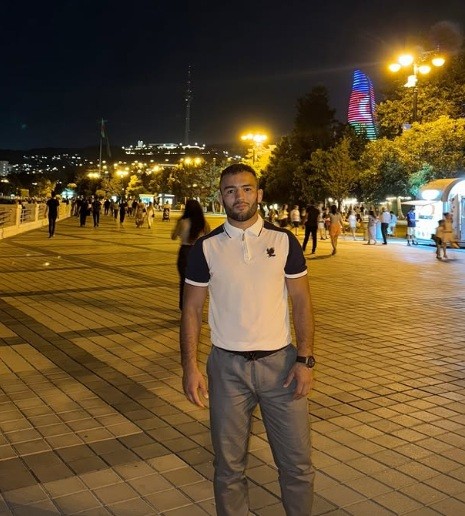
This time, I assume you had a chance to enjoy it more?
I was very impressed. Azerbaijan pleasantly surprised me. It’s probably one of the most beautiful countries I’ve ever been to.
I also had the chance to visit Shusha for the first time, which was very touching and delightful. This trip is memorable for me because I know what happened there. I was truly happy to be there and hope to return someday. I am grateful to fate for bringing me here. It means a lot to me. Like any Azerbaijani, I have lived for the past 30 years with an inner anxiety, knowing that some of Azerbaijan’s territory was occupied by Armenia. So being there with a smile on my face was very meaningful.
Overall, I would especially like to note that I was warmly welcomed in Azerbaijan. I thank Minister of Youth and Sports Farid Gayibov, who unexpectedly organized such a warm meeting for me. I was pleasantly surprised by the minister’s attitude toward athletes who, in a way, are not directly involved in Azerbaijani sports.
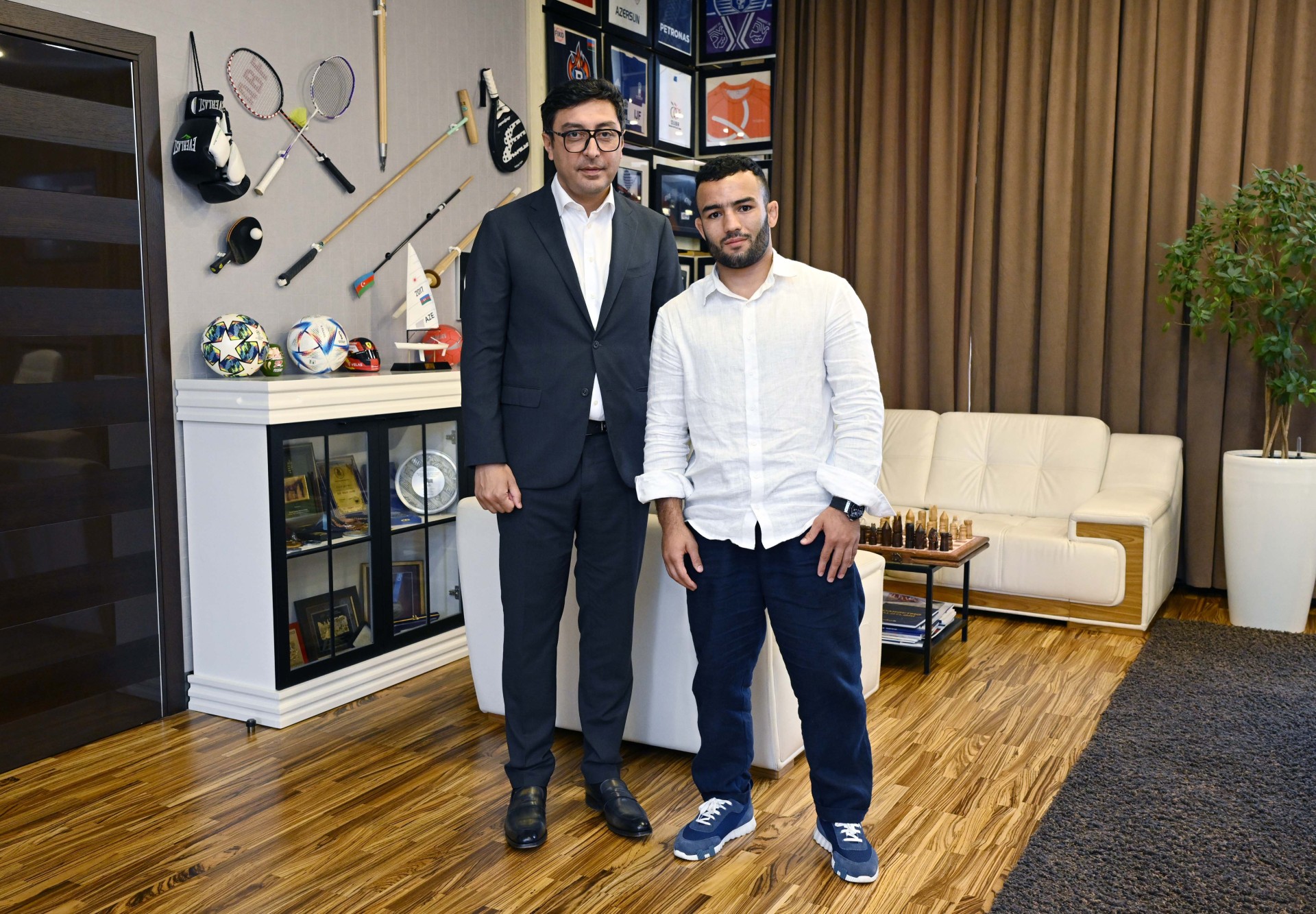
Did you discuss any cooperation issues during the meeting?
Yes. Farid Gayibov offered all the necessary conditions for training and training camps in Azerbaijan, not just for me, but for all Ukrainian athletes. For example, wrestlers will soon have the World Championship in Zagreb, and the Azerbaijani side is already ready to host us. I can only express my gratitude and respect for understanding the difficult situation Ukrainian athletes are currently facing.
In addition, the minister spoke about several programs through which Azerbaijan could host refugee athletes who do not have adequate conditions for training. There have already been such cases, and I hope a couple of these ideas can be implemented. Once again, I want to thank Farid Gayibov for all of this.
You never know around which corner death awaits you
How do athletes in Ukraine manage to train under war conditions?
It’s very difficult. Sometimes you can sleep normally at night, and sometimes you have to spend the night in a basement. It feels like playing Russian roulette, you never know around which corner death might be waiting. Even after moving with my family from Zaporizhzhia to Kyiv, I don’t feel safe, because at night 600–700 missiles and drones could strike.
The situation, of course, is not ideal, you live day by day. Everyone has gotten used to it, and life goes on. You can’t just grieve and stay in a basement all the time. Under these conditions, I trained for the 2024 Paris Olympics, where I won a silver medal. Maybe these conditions only make us stronger. We definitely are not going to sit around and despair.
In this context, it is truly remarkable how Ukrainian athletes, including yourself, win medals on the international stage…
You know, people really get used to everything. Of course, you don’t want to get used to war. But right now, we have no other choice. If there is another way, please tell me, and we will definitely take it (smiles).
Since we have no other option, we, as athletes, try to shout at the top of our lungs that Russia is a country that brings damage, pain, and disappointment. I think the whole world already knows this. So I try to make sure that the Ukrainian anthem and flag are raised high all over the world.
But I also never forget that I am a representative of the Azerbaijani people in Ukraine. My mission is not easy: to speak about being Azerbaijani in Ukraine, and to raise awareness worldwide that there is a war going on in Ukraine.
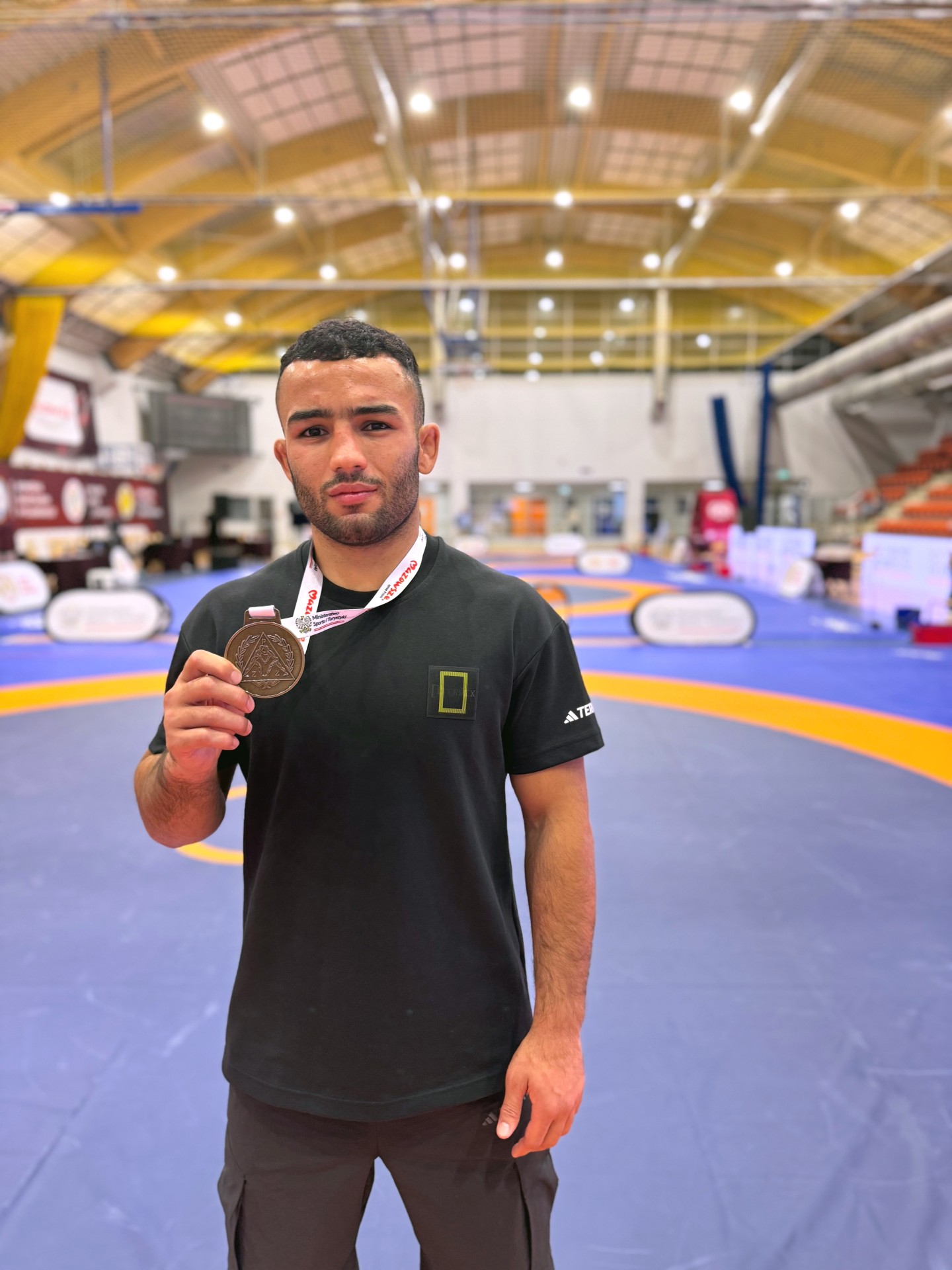
How did the hostilities reach you?
We were forced to move from Zaporizhzhia to Kyiv, leaving everything we had behind. Actually, I first encountered the war in Kherson, where my wife is from. Let me remind you, Kherson was one of the first cities occupied by the Russians. I also know a lot about the war in Azerbaijan, my parents told me many stories about it. It feels as if war follows us, so I understand well what it is like.
How did you manage to leave Kherson?
I know many people who ended up under occupation. Some, when leaving, ran into Russian tanks, some were killed, while others managed to escape. Thank God, we didn’t encounter any tanks. We managed to leave in time. Every second counted back then.
How do you feel when you compete against Russian athletes, who are now allowed to compete under a neutral status?
I consider it somewhat wrong. While they are sleeping in their beds, I am running through basements with my one-year-old child in my arms. I see no justice in that. Yes, sport is supposed to be separate from politics, but Russia is proving otherwise in every way.
You know, many of my fellow Azerbaijanis and friends are currently on the front lines, and thanks to them, I am able to compete internationally. Every time I go to a competition, they tell me: “Listen, we are doing everything here so that you can beat them there.”
If you want to understand the feeling, maybe ask Azerbaijani athletes who defeat Armenians. I have the same feelings toward representatives of Russia.
About Hasrat Jafarov and switching to the Azerbaijani national team
You have two silver medals. Are you hoping to compete in a third Olympics?
Honestly, living in Ukraine, it’s hard to make plans. I live day by day, doing everything to keep my family alive. As for sports goals, unfortunately, they are not my top priority at the moment. Nevertheless, my nearest goal is a medal at the upcoming World Championship, preferably gold. I would also like to trade the two silvers from the Olympics for one gold.
By the way, you often face Azerbaijani wrestlers on the mat. In particular, you’ve defeated Hasrat Jafarov twice…
You know, many try to exaggerate the idea that I have a rivalry with Hasrat. (Jafarov did not shake Nasibov’s hand after losing at the Zagreb tournament and later admitted that he didn’t because he dislikes losing — Ed.)
To be honest, I don’t care. I share the mat with him, I’m not at odds with him. I managed to defeat him twice, and I consider myself the better wrestler. I can’t say anything bad about him, he’s a young and promising guy. This is my job: he wants to beat me, and I want to beat him.
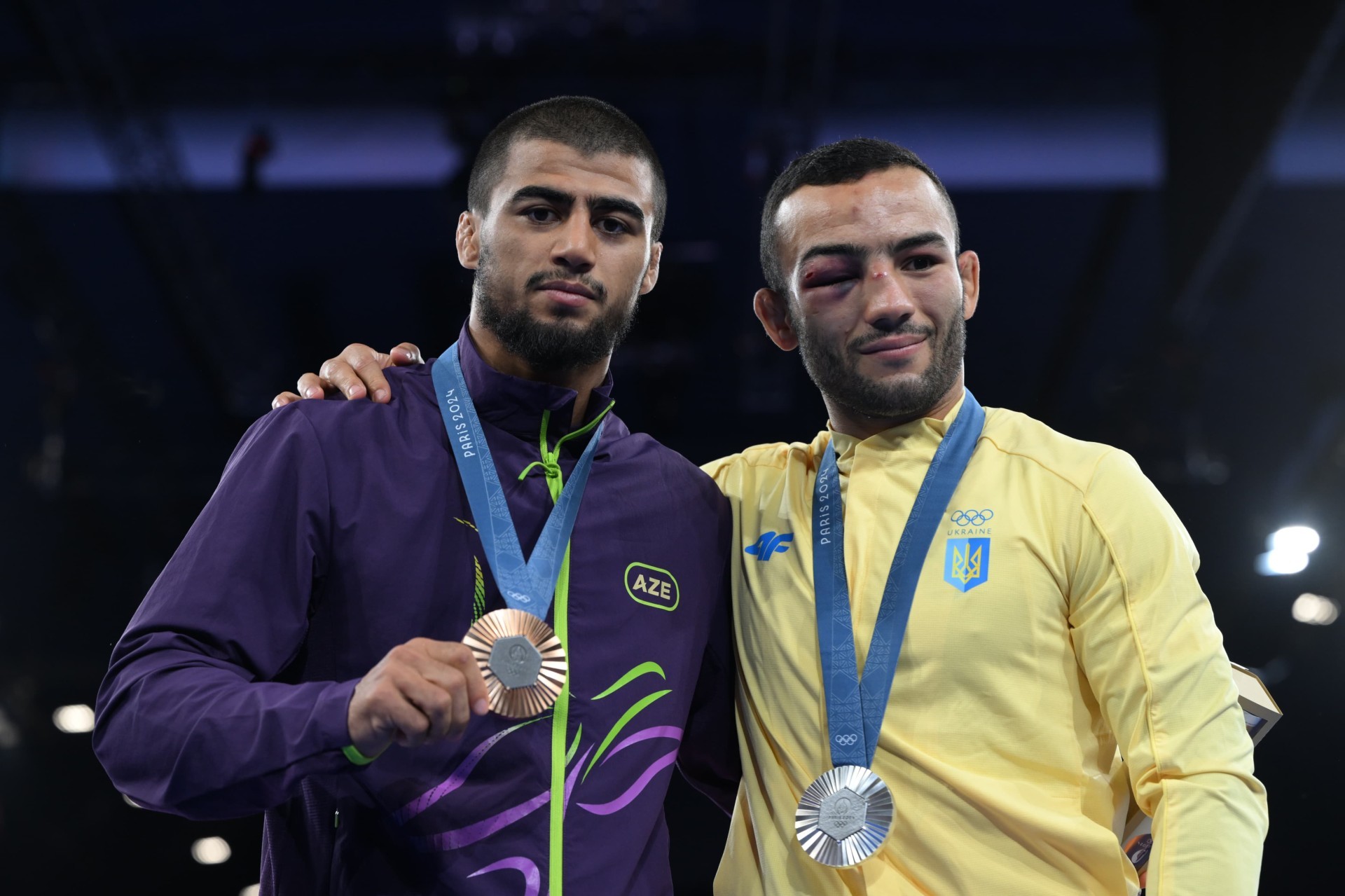
I also wrestled with Ulvu (Ganizade defeated Nasibov at the 2024 European Championships — Ed.), he’s a great guy, and we get along well. It’s nice to share the mat with him. I believe I can get my revenge at the upcoming World Championship. There’s also Sanan Suleymanov, with whom our personal record is 1:1.
But still, it seems there’s some tension in your relationship with Hasrat Jafarov…
No (smiles). During joint training camps, we can see each other and talk calmly. There is definitely no negativity between us. There were matches I won, and I always showed respect, extending my hand to help him up. How he behaved back then, that’s his problem, I don’t pay attention to it.
So, there’s no tension with Hasrat, I just find it easier to communicate with Ulvu. He’s very pleasant to me. Overall, I have good relations with everyone, including Islam Abbasov, Rafig Huseynov, and others.
Are there many athletes of Azerbaijani origin competing in Ukrainian national teams?
Quite a few. In wrestling alone, there are at least ten Azerbaijanis, we are all very close and help each other. As the team captain and senior member, I always try to pay attention to my fellow countrymen.
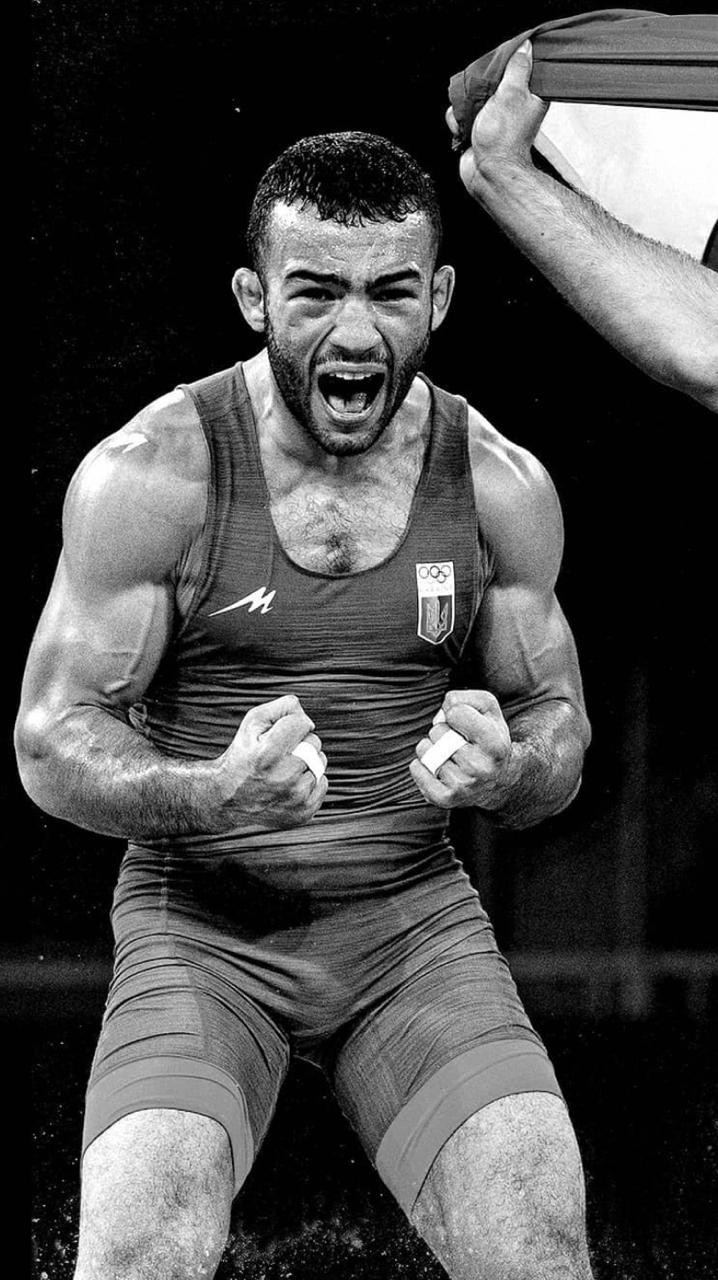
Are there wrestlers among them who want to compete for their historical homeland?
Honestly, I haven’t asked them about that. If you ask me, I certainly can’t say I’m strictly against it. I just have two coaches who are 85 years old, and they, in a way, live thanks to my achievements. My conscience wouldn’t allow me to abandon them and leave.
I’m not the kind of athlete who chases money or opportunities. Azerbaijan and Bulgaria offered me much more favorable conditions, but it’s not about the money. These are the people who showed me the path in both wrestling and life. They are like parents to me, and I can’t turn away from them.
Nevertheless, I love Azerbaijan. Wherever I am asked in Ukraine, I always say I am Azerbaijani. Although I’ve lived there for 20 years—much longer than in my historical homeland, I always remember and declare that I am, first and foremost, Azerbaijani.
Teymur Tushiyev
Idman.biz












